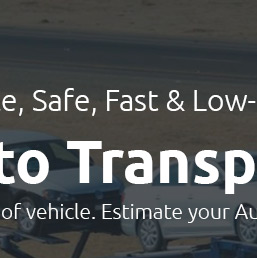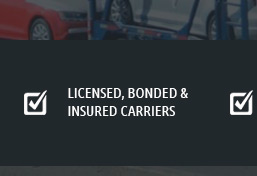 |
|
||||
 |
 |
 |
 |
||
 |
 |
|||||
 |
 |
 |
 |
 |
 |
 |
||
 |
 |
 |
 |
 |
 |
 |
 |
 |
 |
 |
|
 |
How to Ship Your Car to Another StateTransporting a vehicle across state lines might seem like a daunting task, yet with a bit of research and planning, it can be a smooth and stress-free process. When faced with the need to ship a car to another state, whether due to relocation, selling a vehicle, or simply heading to a new destination for an extended stay, knowing the right steps is crucial. This article aims to guide you through the intricate process of car shipping, highlighting essential considerations, potential pitfalls, and expert tips. First and foremost, understanding the different methods available for car transport is fundamental. The two main options include open transport, where your car is placed on an open-air trailer, and enclosed transport, which provides protection from the elements. While open transport is generally more affordable, enclosed transport offers added security, especially beneficial for luxury or antique vehicles. Deciding between these options requires balancing cost against the level of protection you desire for your vehicle. Once you've settled on a transport method, the next step involves choosing a reliable shipping company. Conducting thorough research is indispensable; start by reading reviews, asking for recommendations, and comparing quotes from various companies. It's wise to check their credentials, ensuring they are licensed and insured, which not only safeguards your vehicle but also provides peace of mind. Many find it helpful to get quotes from at least three different companies to gauge a fair price and service level. Preparing your car for shipment is another critical phase that shouldn’t be overlooked. Before handing over your keys, ensure your vehicle is in good working condition. This includes checking the battery, tire pressure, and fluid levels. It's also recommended to clean your car inside and out, not just for aesthetics but to ensure any pre-existing damage is easily noticeable. Removing personal items is crucial, as most transport companies prohibit these due to liability issues. Taking photos of your vehicle before shipment can serve as evidence should any disputes arise regarding its condition upon arrival. Finally, understanding the logistics and timeline of car shipping is essential. Transport times can vary greatly depending on the distance, route, and unforeseen delays such as weather or road conditions. It's beneficial to plan ahead, allowing ample time for your car to be delivered before it's needed at your destination. Communication with your chosen shipping company is key; regular updates on your vehicle’s status can alleviate any anxiety during the waiting period. In conclusion, shipping your car to another state doesn’t have to be an overwhelming endeavor. By selecting the right transport method, choosing a reputable company, and preparing your vehicle adequately, you can ensure a seamless transition. While it might require some effort and diligence, the result is a hassle-free and efficient process, leaving you free to focus on the excitement of your new journey ahead. https://nexusautotransport.com/car-shipping-calculator/
The average car shipping cost is around $650. According to our research on US vehicle shipping companies, you will pay anywhere between 0.40 to $2.00 per mile ... https://www.allied.com/moving-resources/tips/how-to-ship-car-to-another-state
Open Carrier. A double decker semi-trailer that hauls cars, a common sight along roads and highways. Open carriers are the most affordable, but leave your car ... https://www.uhaul.com/Tips/Towing/How-To-Transport-A-Car-To-Another-State-30533/
How it works is simple: by attaching a trailer hitch to another vehicle that can tow, you can move your vehicle to your destination using a tow ...
|
